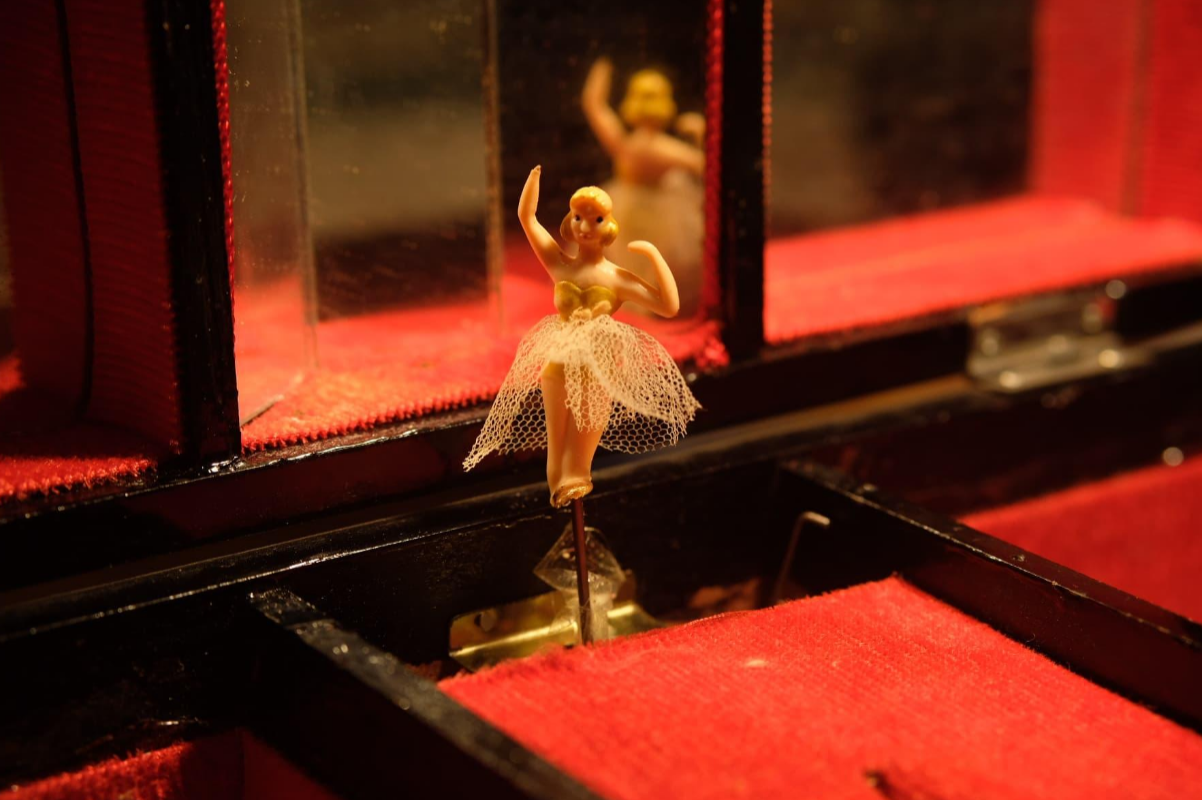I’m at my mother’s house to help her cull a lifetime’s worth of linen, towels, clothes and shoes. It’s a task she is no longer able to manage herself, particularly since her stroke a few years back. It’s early on a Saturday morning, and I’ve left my own house in a mess, my teens still sleeping, my husband tending our garden.
I’m not far in when I find a jewellery box at the top of a wardrobe. Hand-painted mountain peaks and traditional Minka houses decorate its lacquered top and sides, a Japanese style popular in the 70s.
Seeing it dredges up memories long forgotten. The jewellery box was filled with glittering treasure bought back from the old country: a thick, ornate bangle with a complicated clasp; two British sovereigns bequeathed to us by my grandfather; a few Christening crosses and baby bracelets; and a diamond-shaped pendant that would nestle in Mum’s bosom when she wore it on special occasions.
I remember Mum and Dad regularly checking to see that everything was in its place; the provenance of each piece spoken about reverently.
I remember Mum and Dad regularly checking to see that everything was in its place; the provenance of each piece spoken about reverently. The jewellery box was proof that my parents had raised themselves out of the poverty of their Greek rural roots. Along with their newly-purchased worker’s cottage, and the small amounts of cash they could save from their factory jobs, the treasures within were insurance should they ever face such poverty again.
For me, by far the biggest treasure was the ballerina that spun every time you opened the lid. I revelled in watching her turn, her pale pink tutu and golden head of hair rotating slowly as a tinny tune played. I remember putting the lid down slowly, fascinated as the sound subsided, the ballerina bent down flat. Resting, I thought, to magically pop up again next time.
Now, the jewellery box feels lighter, less substantial than I remember it. Its surface is dull where once it gleamed with the weekly spray of Mr Sheen. It takes all my will power to stop myself from looking inside. To do that will take me down the cobbled road of the past, dragging me away from what needs to be done. I cannot, will not, be distracted. I place the box gently on my mother’s bed and begin to move efficiently through piles of linen, towers of blankets and comforters, mounds of shoes. Mum potters around the house doing small, manageable tasks, advises when asked, agrees with most of my suggestions. I am pleased we are doing this now, not when she is gone.
I place the box gently on my mother’s bed and begin to move efficiently through piles of linen, towers of blankets and comforters, mounds of shoes. Mum potters around the house doing small, manageable tasks, advises when asked, agrees with most of my suggestions. I am pleased we are doing this now, not when she is gone.

"For me, by far the biggest treasure was the ballerina that spun every time you opened the lid." Source: Supplied
Some hours later, several large bags sit beside the rubbish bin for disposal. A carload of items has been delivered to the op shop. Boxes have been labelled and neatly placed back into the wardrobe. The only thing left on Mum’s bed is the jewellery box.
Not a little apprehensively, I open the lid. The first thing I notice is the absence of music. The ballerina isn’t spinning. Her dress is faded and she leans a little to one side. I see that her golden locks are simply a lick of paint.
Spiri Tsintziras is a freelance writer.




